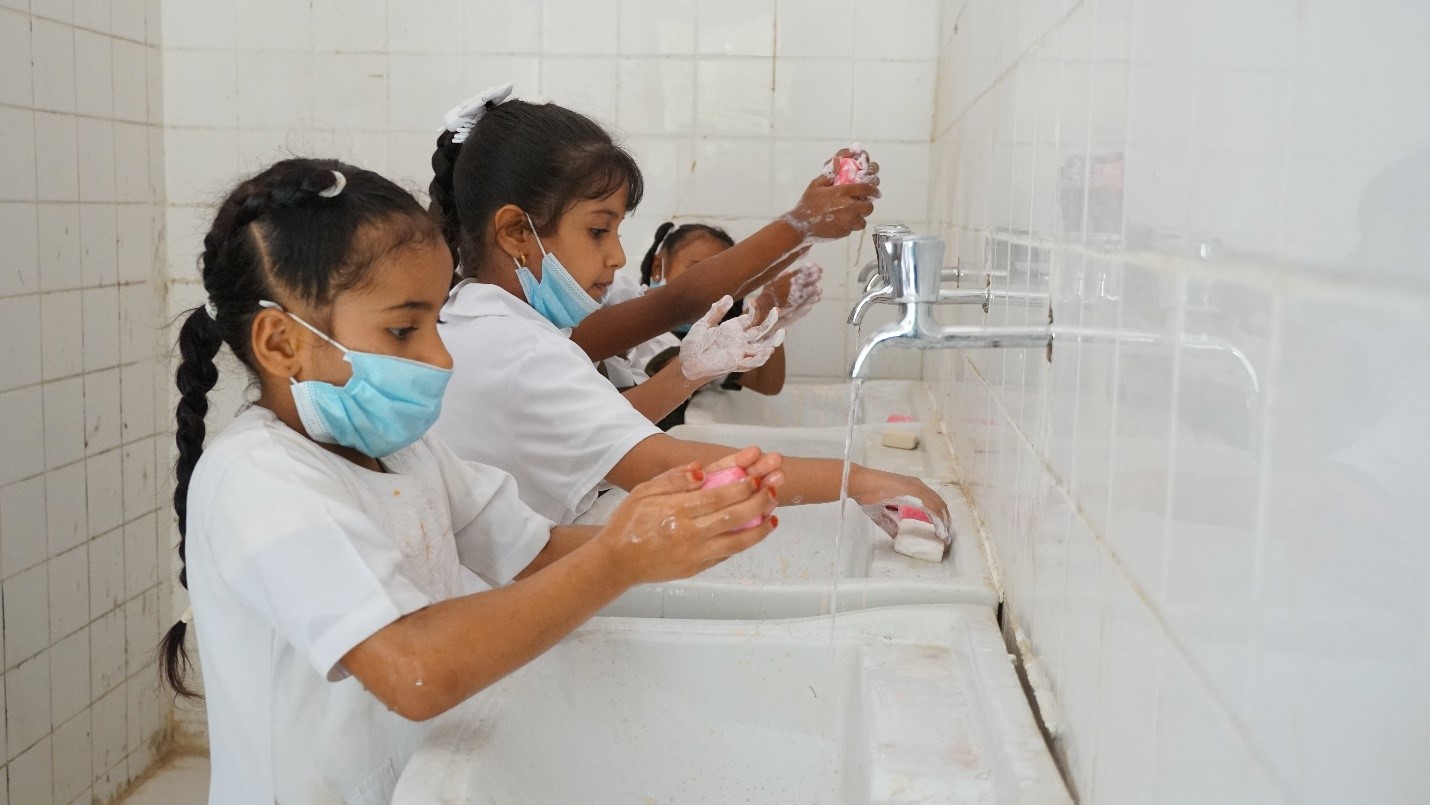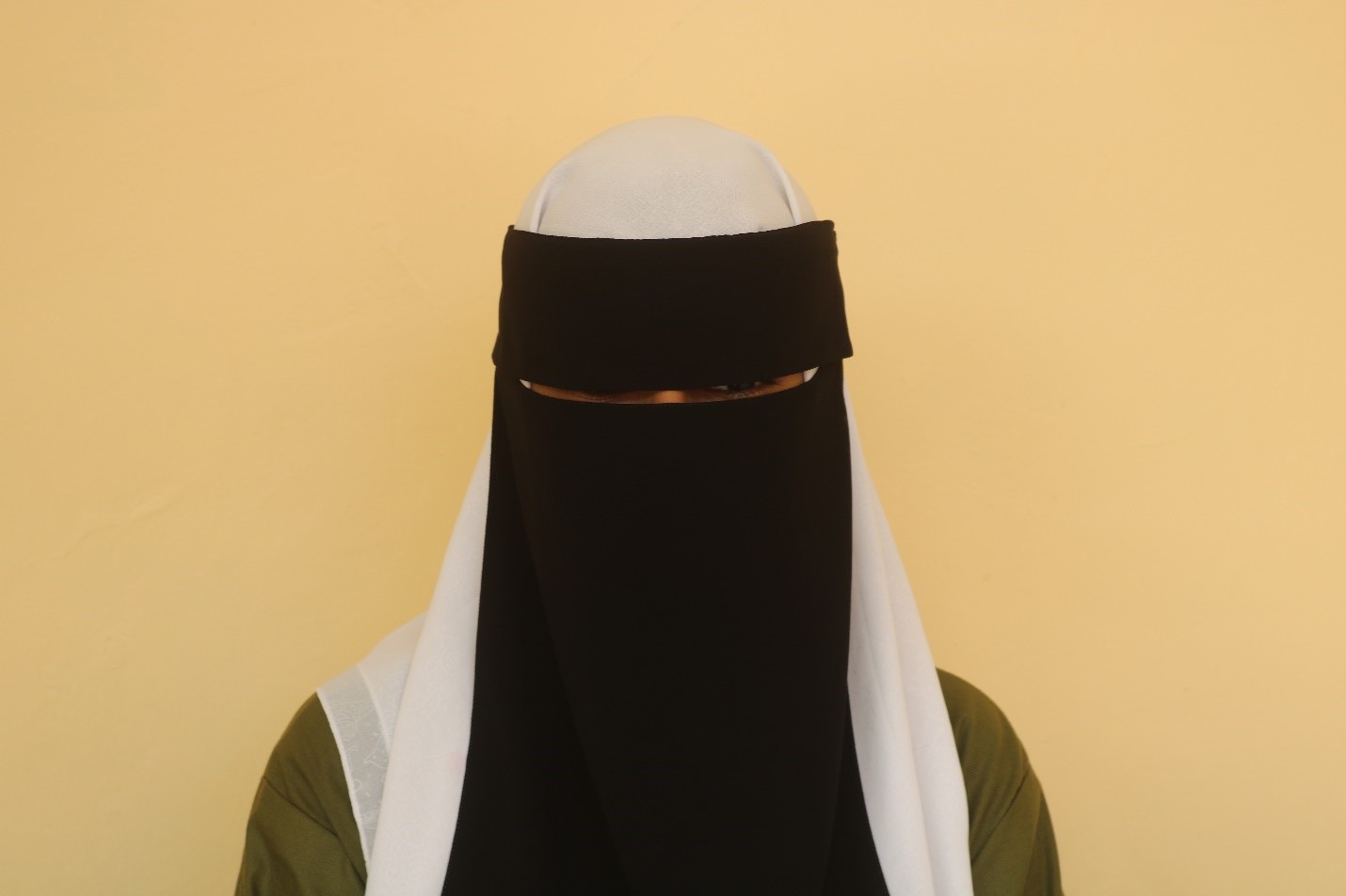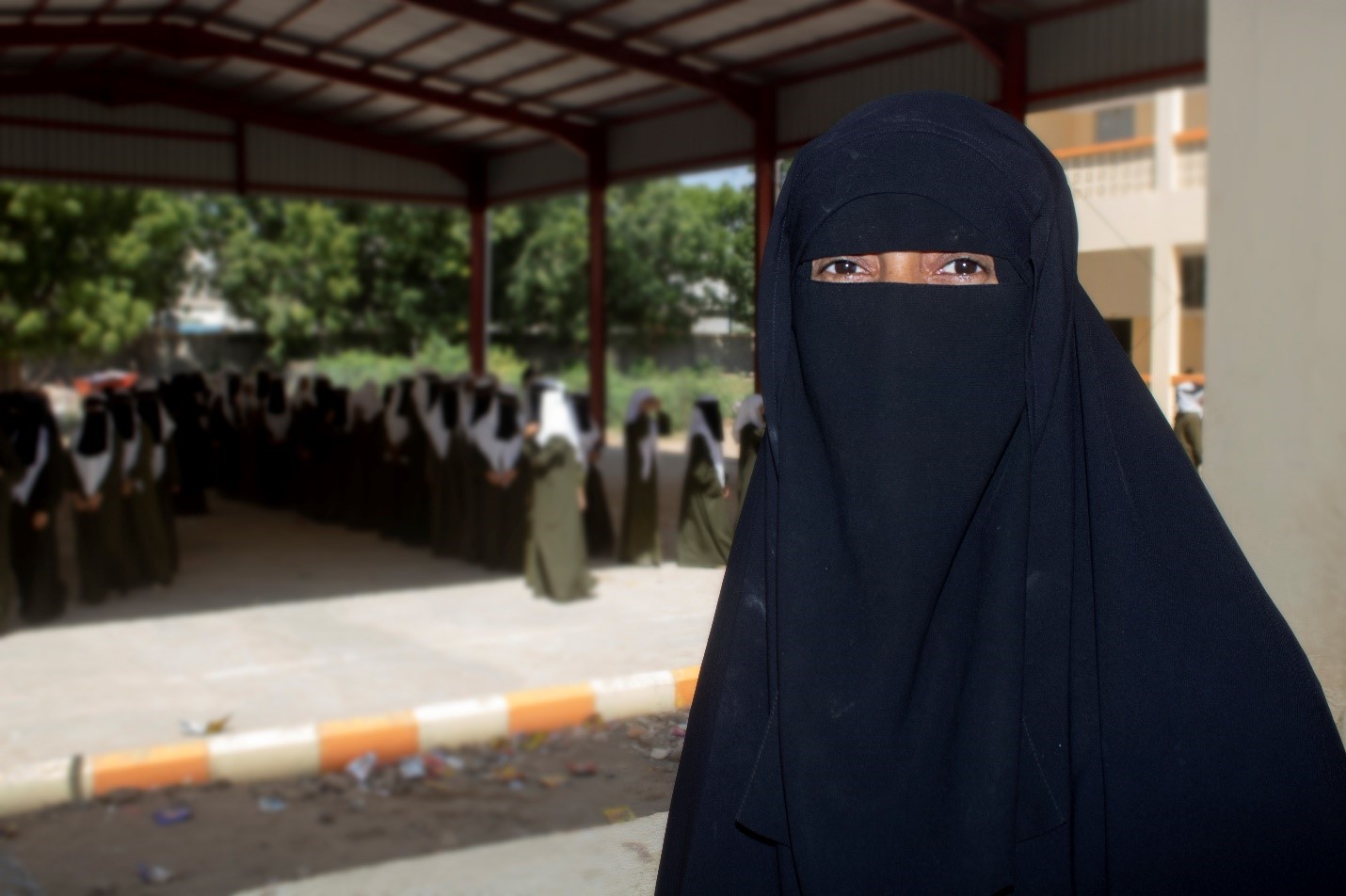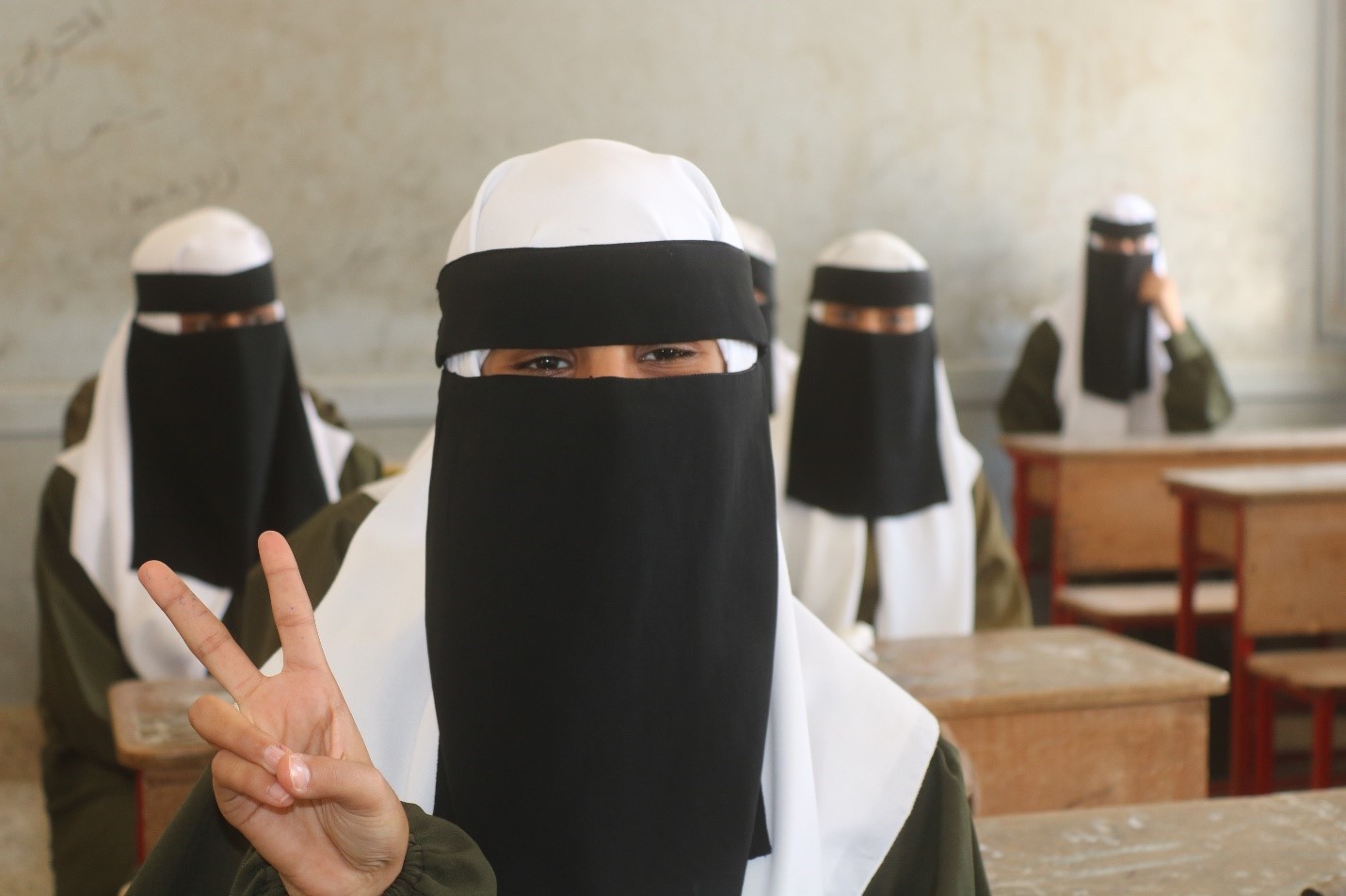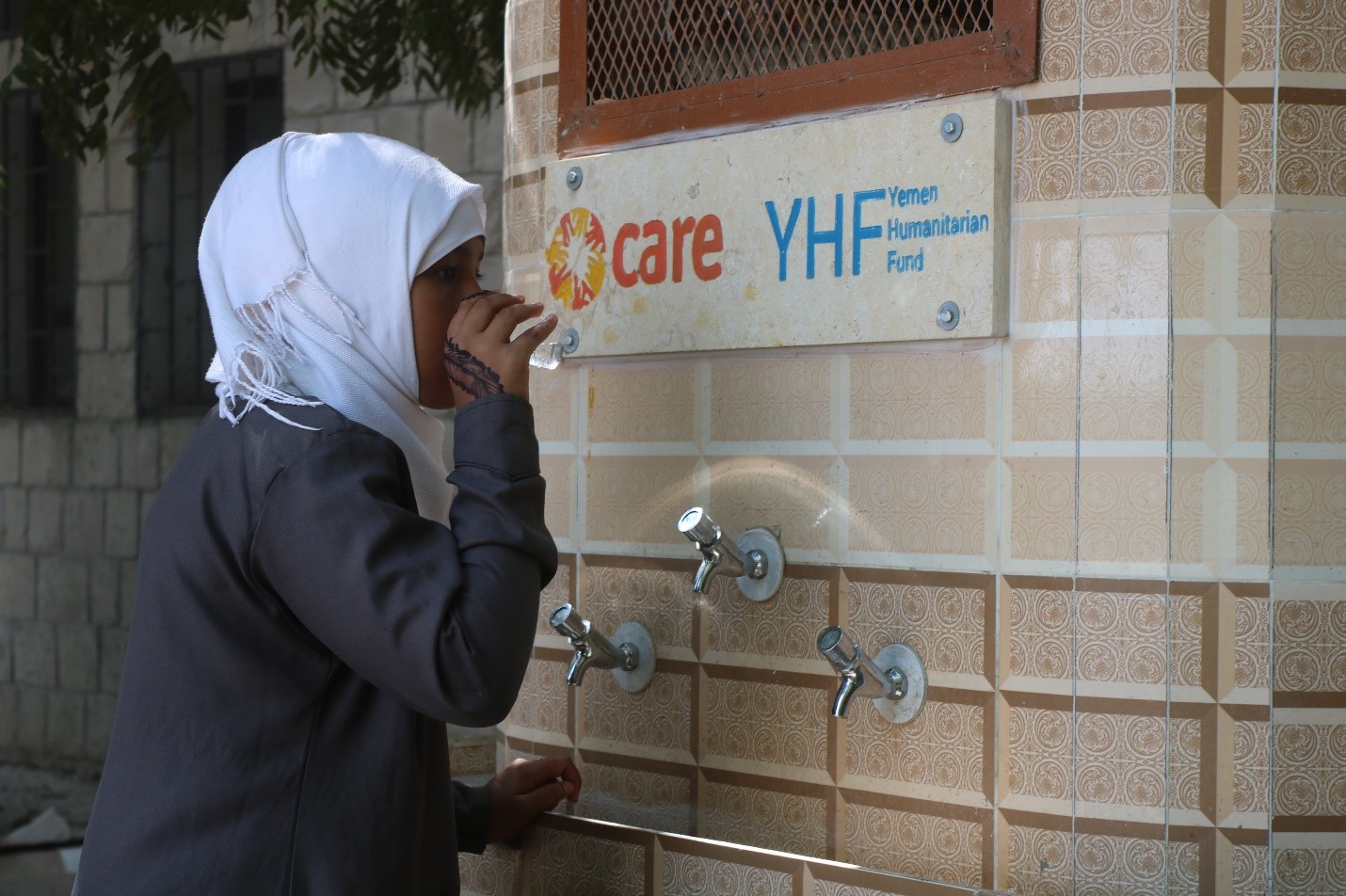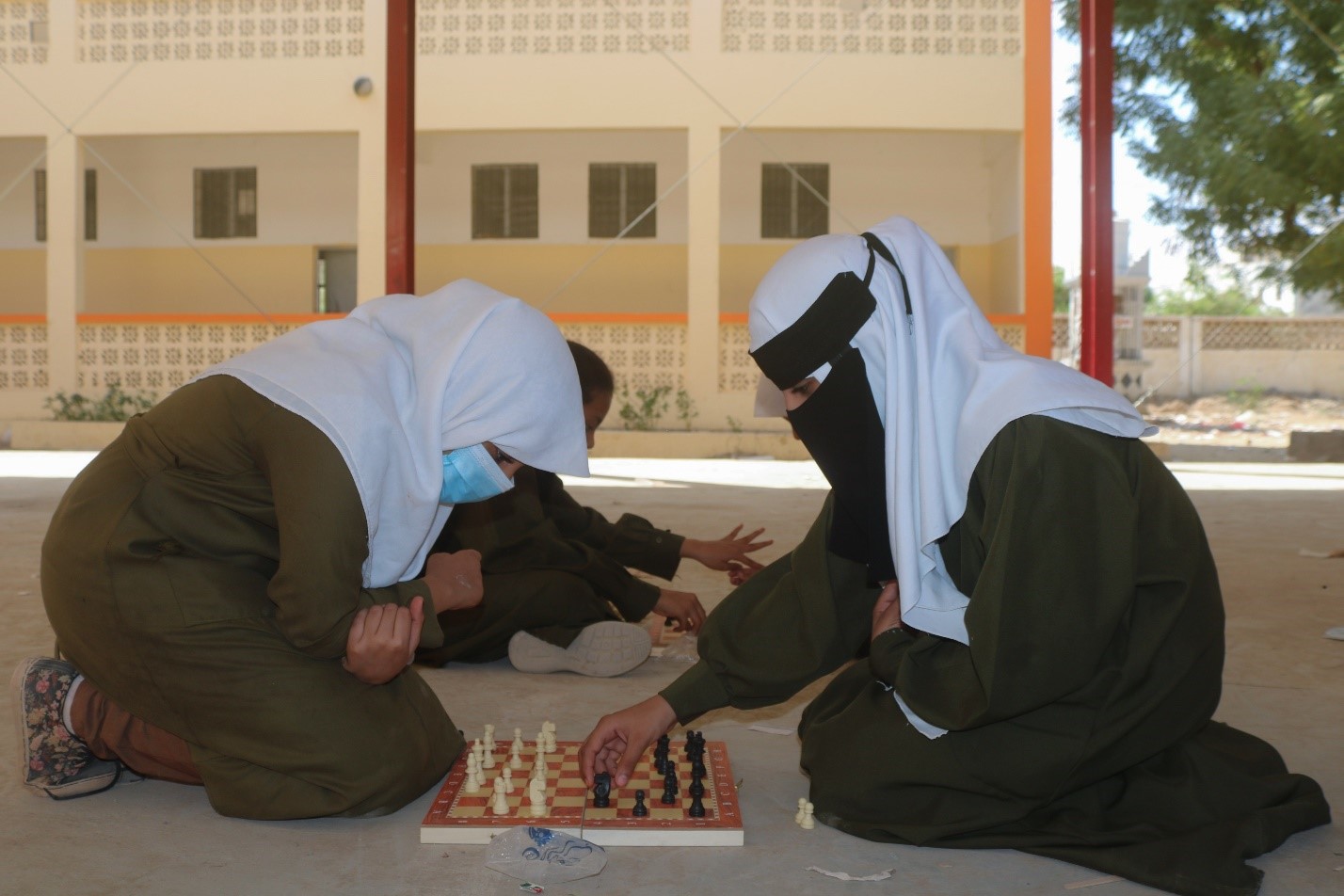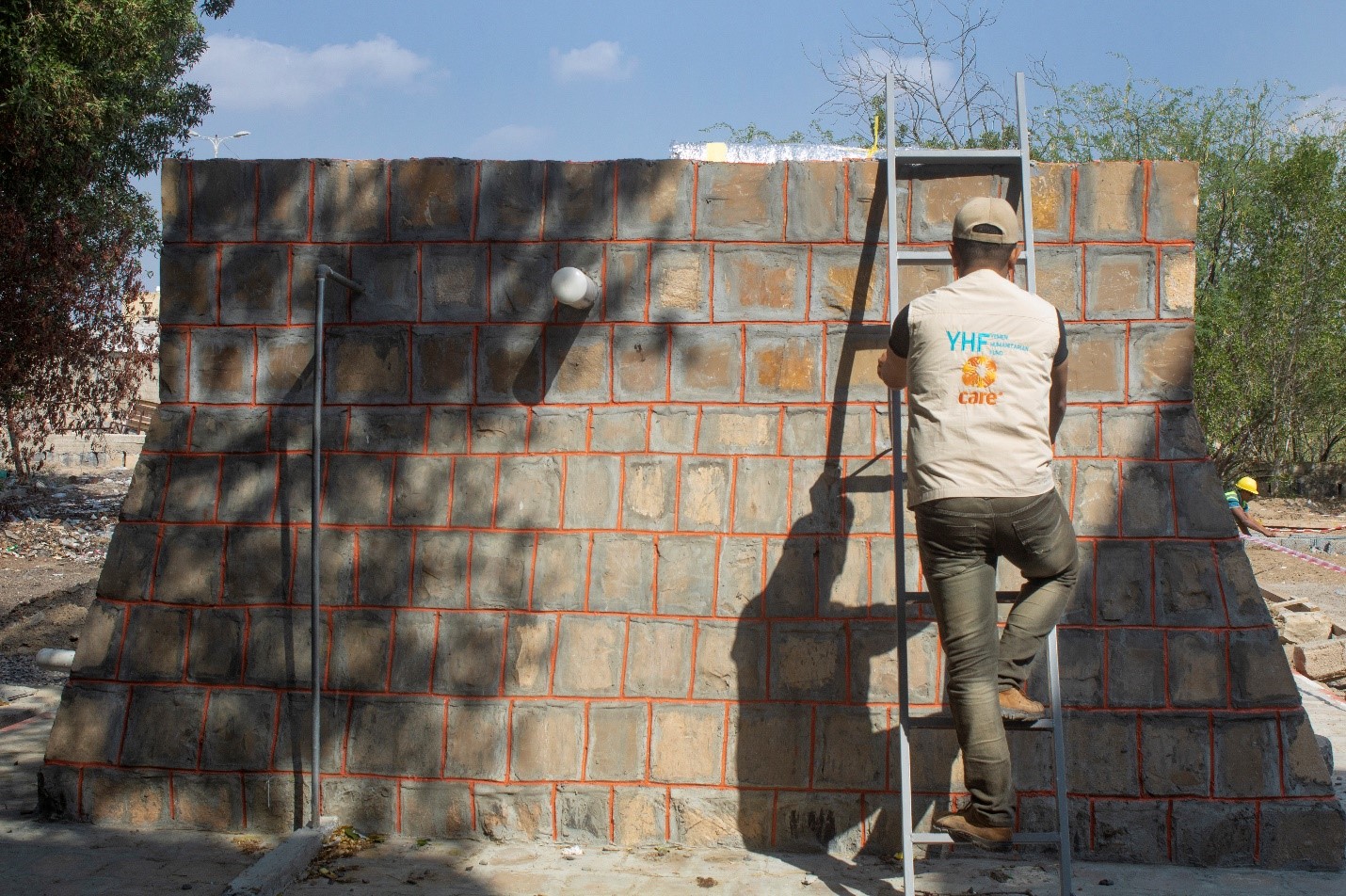To facilitate better access to education, particularly for girls, CARE, with funding from Yemen Humanitarian Fund (YHF), has worked with the Office of Education in Abyan, to rehabilitate the latrines in eight schools in Khanfar and Zinjibar districts in Abyan governate, and equip them with water tanks, hygiene items and hand-washing stations.
Hygiene awareness sessions were also conducted to teach students about good and safe hygiene practices, which they often pass on to their parents, siblings and other members of the community.
Safia, like the rest of the girls in the targeted schools, is thrilled to have clean water and latrines at school. “My friends and I stopped missing the classes because we have clean latrines with water, soap and handwashing stations,” she says.
Along with providing necessary kits such as first-aid kits, hygiene kits, dignity kits and recreational kits, the project installed shades and drinking water stations to protect students from the strong sunlight and heat. “Thanks to the new shade, now I can play with my friends in the schoolyard fearlessly,” says Abeer.
“Children have the right to learn in a safe environment,” says Nawal. “Now we hardly ever see students faint in the schoolyard. Watching students play safely under the shade makes me feel as contented as a mother who has finally got a safe roof to protect her children. We are grateful for CARE and YHF’s efforts in creating an improved learning environment for children in Abyan,” she concludes.
Access to clean water, sanitation, and hygiene is essential for helping girls to stay in school Children have the right to feel safe and comfortable in school. Supporting water, sanitation and hygiene in the schools helps preserve students’ dignity and health.
